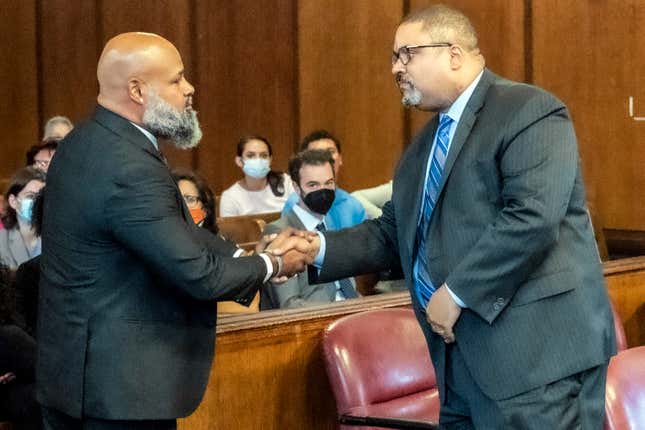
Manhattan District Attorney Alvin L. Bragg Jr. launched an application process for people seeking a review of their convictions. Following the exoneration of Steven Lopez, the sixth teenager charged in the Central Park Five case, the DA’s Office made plans to free more people who suffered the same fate.
According to The Innocence Project, New York has the third highest number of wrongful convictions in the country. Part of the reason is that legislation makes it difficult for people who plead guilty to challenge their convictions, like Lopez. However, the other reason is rooted in the ways officers and detectives investigate crimes and falsely identify their suspects.
The new Post-Conviction Justice Unit is focused on resolving that very issue and undoing the wrongful convictions that were a result. However, the Central Park Five case happened in 1989 and the men were exonerated in 2002. What took so long to create this unit?
“The creation of the unit is based on best practices that we’ve seen in other places including Brooklyn and Dallas - [it was] born of a firm commitment that we not only have to sort of look forward with reform but look back and right wrongs,” Bragg told us. “One lesson from this is that we need to be focusing our wrongful conviction practice not just on trial convictions, but also on convictions by plea.”
More on the Post-Conviction Justice Unit from the Manhattan District Attorney’s Office:
Once PCJU receives an application, it will conduct an initial screening and notify the petitioner whether their case will be accepted for a full reinvestigation. The Unit will prioritize cases where the applicant is convicted of a serious offense and is currently either in prison or under parole or post-release supervision. Active cases are not eligible for review. In addition to impacted people, attorneys, community members, family and friends can submit petitions on behalf of people convicted of crimes.
The Office recognizes that there are many factors that can undermine confidence in a conviction. Some of the factors the Office may consider when reviewing an application for screening or considering whether to vacate or modify a conviction include: innocence; request for DNA or other forensic testing; due process violation; faulty forensic science; unreliable witnesses; or ineffective assistance of trial counsel.
According to PCJU Chief Terri Rosenblatt, the unit has received over a hundred applications since its launch in January. Rosenblatt said the Central Park Five case will serve as a sort of template in reviewing other cases and preventing more like these from happening.
“Part of our process when we vacate a conviction is to look at the root causes of that conviction to try to make sure that we don’t make the same mistake or constellation of mistakes twice,” Rosenblatt said. “Certainly as we do that, we’ll look at some of the issues that are well known to have been a part of the Exonerated Five Case, including the statements, evidence, the kinds of forensic evidence that were used. Those will all come into play.”
Evaluating cases and evidence (or lack thereof) is crucial but one of the main issues leading to these convictions is people being bullied by investigators. Amidst our current hyper-awareness of police brutality, police accountability has been a demand from communities of color. Bragg told The Root reports of misconduct will be investigated but through another unit of his office.
“I’ve had three convictions of police officers already this year, out of that unit and their other investigations. They’re quite active. And certainly when we become aware of misconduct from almost any arm of the office, it goes to our Police Accountability Unit,” said Bragg.
To petition the Manhattan District Attorney’s Office for a review of a wrongful conviction fill out an application and send it to PCJU_intake@dany.nyc.gov.

